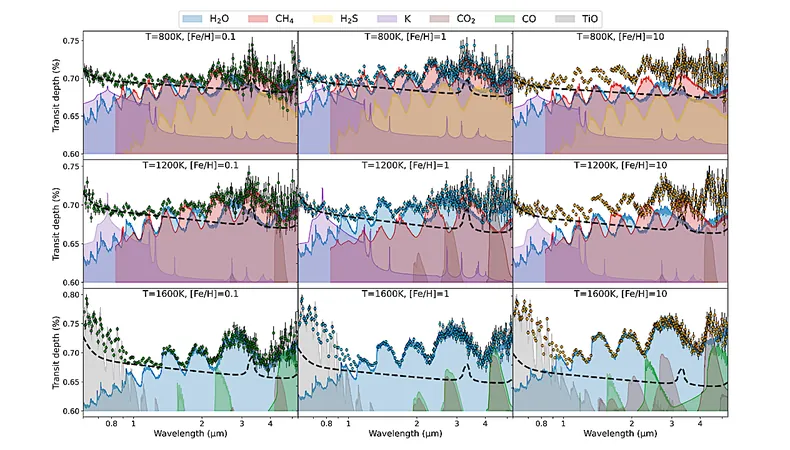
Are You Feeling the Winter Blues? You're Not Alone, New Poll Reveals Shocking Stats
2024-11-06
Author: Sophie
Are You Feeling the Winter Blues? You're Not Alone, New Poll Reveals Shocking Stats
As winter descends and daylight dwindles, a significant number of Americans are grappling with what is commonly known as the "winter funk." A recent poll conducted by the American Psychiatric Association (APA) reveals that a staggering 41% of Americans report a decline in their mood during the colder months. This phenomenon is especially pronounced in the Midwest and Northeast, where 52% and 46% of residents respectively admit to feeling the winter blues.
Dr. Ramaswamy Viswanathan, president of the APA, explains that the reduction in natural light combined with the abrupt switch to standard time can be substantial stressors. The holiday season, while joyful for many, can also induce feelings of overwhelm.
The poll identified several common effects of winter on mental health, which includes:
Increased sleepiness (41%)
Feelings of fatigue (28%)
Symptoms of depression (27%)
A loss of interest in previously enjoyed activities (20%)
Interestingly, the strategies used to combat these winter mood swings tend to vary. The highest-ranking coping mechanism involves simply connecting with friends and family (46%), followed closely by prioritizing sleep (35%) and spending time outdoors (35%).
Notably, there’s a discernible difference in how men and women experience these seasonal changes. More women reported mood declines (45%) compared to men (37%). Women also seem to be more affected by the end of Daylight Savings Time, with 33% reporting negative mental health impacts compared to 26% of men.
Moreover, where one lives plays a role in how winter affects mood. Rural residents are more likely to report feeling down during winter (46%) compared to their urban counterparts (36%). Additionally, a greater percentage of rural dwellers struggle with the transition to standard time (31% versus 24%).
While many experience mild symptoms of winter blues, some may develop Seasonal Affective Disorder (SAD). This condition arises when sunlight exposure decreases significantly, leading to symptoms such as persistent sadness, changes in appetite, and disrupted sleep patterns. Fortunately, clinicians highlight that SAD typically lifts with the arrival of spring.
Dr. Viswanathan advises individuals monitoring their mood to be proactive: "If you're feeling significantly worse during this season, consider seeking help from a mental health professional. Remember, the brighter days of spring are just around the corner."
Treatment options for SAD include light therapy, antidepressants, and psychotherapy, providing hope for those who struggle with this seasonal challenge.
This insightful poll included responses from 2,201 adults and was conducted between October 18-20, underscoring the urgent need for awareness around mental health issues in these trying winter months. Are you ready to combat the winter blues? You’re definitely not alone!









 Brasil (PT)
Brasil (PT)
 Canada (EN)
Canada (EN)
 Chile (ES)
Chile (ES)
 España (ES)
España (ES)
 France (FR)
France (FR)
 Hong Kong (EN)
Hong Kong (EN)
 Italia (IT)
Italia (IT)
 日本 (JA)
日本 (JA)
 Magyarország (HU)
Magyarország (HU)
 Norge (NO)
Norge (NO)
 Polska (PL)
Polska (PL)
 Schweiz (DE)
Schweiz (DE)
 Singapore (EN)
Singapore (EN)
 Sverige (SV)
Sverige (SV)
 Suomi (FI)
Suomi (FI)
 Türkiye (TR)
Türkiye (TR)